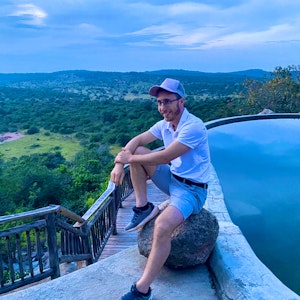Best Time To Visit
When to go to Tanzania
Tanzania is a year-round destination. Daytime temperatures range between 20- 35°C. The long rains fall in April and May; the short rains fall in November. Optimal times for game viewing are specific to each area, although in general the popular time to go is in the dry season which falls between June and October. It can be chilly during this period as it's winter in the Southern Hemisphere, so take a warm clothes for early morning game drives. The migration is best seen December-July.
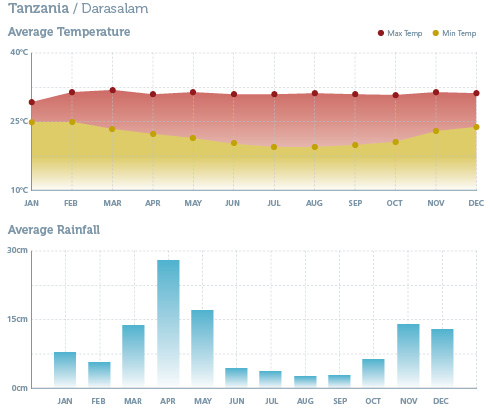
Getting there
The main access points of Kilimanjaro, Dar es Salaam and Zanzibar, best from London on British Airways and Kenya Airways direct flights via Nairobi. There are a number of services from the rest of UK via Europe and the Middle East. The remainder of the internal connections are generally by scheduled light aircraft flights, giving ease of connection between northern Tanzania and Zanzibar / Western Tanzania or southern Tanzania and Zanzibar.
Time Zone
GMT +3 hours
Visas
Visas are required for Tanzania and Zanzibar. British citizens can purchase visas at point of entry for $50.
Health
Passengers arriving from a yellow fever zone, such as Kenya, Rwanda and Uganda, require a vaccination certificate on entry. There are no other compulsory health requirements. Tanzania is a malarial area and precautions should be taken. Always consult your doctor at least six weeks before travel and refer to this useful NHS website for details of recommended vaccinations for your destination.
Why go on holiday to Tanzania
Our East Africa team says that for world-class game viewing, genuine cultural interaction and knock-out scenery, Tanzania is right at the top of any safari destination list. The less explored, southern and western reserves are the places to experience true wilderness, where in some areas it’s said lions outnumber people.
For more travel advice on Tanzania, read our Frequently Asked Questions.
See example holidays to Tanzania or ring our knowledgeable East Africa team for help and advice on 020 7666 1250.
Things To Do
- Take a hot air balloon flight over the Serengeti
- View the annual wildebeest migration
- Soak up the sunset with a sun-downer on the rim of the Ngorongoro Crater
- Trek Chimpanzee in the jaw-droppingly beautiful Mahale National Park
- Climb Africa’s highest mountain, Kilimanjaro
- Fly-camp overnight in the remote Ruaha National Park
- Surf, kayak and snorkel on the unspoilt Tanzanian Coast
The best ways to see Tanzania
Mobile camping in Africa’s vast Serengeti, walking in the Selous or chimp trekking in Mahale rank among Tanzania’s most awesome experiences. Combine some of these elements in a traditional overland wilderness adventure or a fly-in safari.
Seasonality is a key factor in choice of location. We can help you choose the best locations for the time of year.
Experienced safari-goers will be spellbound by Ruaha and Katavi national parks. It is easy to combine a safari in Tanzania with a beach break in Zanzibar, Mafia Island or even northern Mozambique.
Seasons in Tanzania
Seasons vary slightly from camp to camp and region to region but generally:
High season: January/February/July/August
Mid season: March/June/September/October/
November/December
Low season: April/May
FAQ
A huge fan of Tanzania, Fiona Herring answers questions about travelling on holiday to Tanzania. Our Frequently Asked Questions sections are intended to help you decide if a particular destination is what you are looking for. Get in touch with Chania if you would like some firsthand advice.
WHY WOULD I CHOOSE TANZANIA OVER OTHER SAFARI OPTIONS?
I think Tanzania is the most diverse safari destination in Africa, blessed with a stunning physical landscape that gives some of the greatest wildlife experiences on the continent. It is probably most famed for its Northern Parks like Ngorongoro Crater, the Serengeti and Lake Manyara. Many of these areas are also tribal lands and so you have the added cultural experience to go with the wilderness and wildlife. It is the perfect place to head to if you want to have good mix of game viewing, cultural interaction and scenic diversity.
HOW DO WE GET THERE?
For main Tanzania access points of Kilimanjaro, Dar es Salaam and Zanzibar, British Airways and Kenya Airways operate daily direct flights from London via Nairobi. In addition, a number of services from the rest of UK via Europe and the Middle East.
HOW DO WE TRAVEL AROUND THE COUNTRY?
Travel around Tanzania is mainly done in four-wheel drive safari vehicles. You will also most likely fly between some locations on small aircraft as this is easy and maximises you time game-viewing.
IF THERE WAS ONE THING I SHOULDN’T MISS, WHAT WOULD YOU RECOMMEND?
I’d say the Serengeti National Park every time! The Serengeti will always have a surprise in store for you, be it when you are out in the bush experiencing the wonder of the great wildebeest and zebra migration, or when searching for the big cats. There is always so much action here.
IS TANZANIA SAFE?
Like anywhere it is advisable to keep your valuables with you and not on show. Of course, there are many wild animals and you must always listen to the advice of your guides. On most of our trips you will be looked after by our representatives and will be met and transferred to all locations, so you are well looked after.
CAN I DRINK THE TAP WATER?
You should not drink the tap water, but instead drink bottled water. It is always best to check the bottle is sealed when you receive it.
IS ENGLISH WIDELY SPOKEN?
Yes the majority of people who you will meet will speak English. Although over 100 different languages are spoken across Tanzania, the official languages are KiSwahili (it is definitely worth learning the basics before you go) and English.
SHOULD I EXPECT VERY BASIC FACILITIES IN ALL TANZANIA HOTELS AND LODGES?
This really does depend on where you are staying, but accommodation ranges across the country from basic (but comfortable) camping to the ultimate in luxury.
WHAT IS THE LOCAL FOOD LIKE?
Most of the time you will be eating in your lodge or camp, which will be of a good standard. It’s always better to advise us prior to travel if you have any specific requests, as lodges do need to bring in food especially. Some places are a long way from towns so are unable to get supplies in at short notice.
When you are staying in bigger towns there are normally many eating-out options. Indian restaurants are plentiful, due to the high resident Indian population, and also pizzerias and continental restaurants are numerous. On the coast seafood is normally superb – my favourite and something I always recommend.
Local cuisine tends to be made up a stew, which includes one of the following - rice, chapti, ugali (a kind of maize porridge) or batoke (cooked plantain). The most common stews are beef, chicken, goat and beans. Fish is also used in towns near the coats and lakes. Swahili cuisine tends to be a bit spicier than other Tanzanian food.
If you do eat local food it is best to ask the advice of your guide, but it can be a great experience and one you shouldn’t miss!
HOW MUCH OF A CULTURE SHOCK IS TRAVELLING TO TANZANIA?
It really does depend on where you have travelled previously, but Tanzania is a poor country and you will need to be prepared to see poverty as is the case throughout Africa. Although many people have very little, you’ll feel very welcomed and hopefully will learn more about the local cultures and traditions.
HOW CAN I CONTRIBUTE TO THE LOCAL ECONOMY AND CONSERVATION PROGRAMMES?
Buying local foods and produce is a good direct way to contribute to the local economy. Also buying presents for people back home adds to local income. If you are interested in any specific areas - schools, conservation programmes etc we can normally arrange for you to visit and find out more.
DO I NEED TO GET ANY VACCINATIONS AHEAD OF TRAVEL AND/OR MALARIA TABLETS?
Yes, you will need to speak to your GP or travel clinic to find out what is required. Tanzania is malarial. Remember to do this at least six weeks ahead of travel.
I AM PREGNANT, CAN I TRAVEL TO TANZANIA?
Again it is always best to consult your doctor on whether and if you should travel.
Craig Kaufman
Travel Specialist
Looking for inspiration?
You'll find expert travel guides, holiday ideas and insider tips now on the Rainbow blog
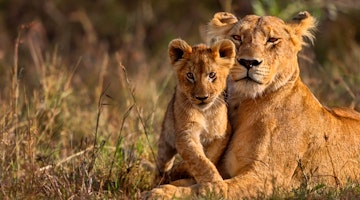
Top 5 First Time Safari Destinations
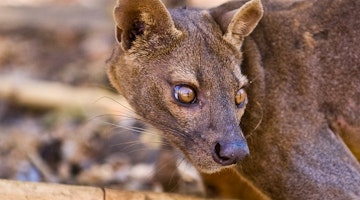
10 Strange Animals and Where to Go to See them


Salar De Uyuni - The World's Largest Salt Flat

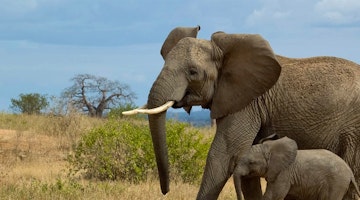
Top five South Africa Safari lodges
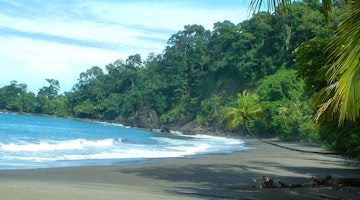
Sustainable Tourism In Corcovado National Park, Costa Rica

Why Choose Us?
Passionate travel experts
- We've been leading wildlife travel since our first South Africa tours over 25 years ago
- Our Travel Specialists have lived in their specialist area for years
- We work with local guides to immerse you deeper in our diverse range of experiences
Personal & tailor-made
- You'll speak to your own expert who'll share their first-hand knowledge
- We'll make your itinerary seamless with 24/7 emergency contact available
- Your Travel Specialist will listen to ensure you have the best chance of seeing the wildlife you love
Responsible by nature
- We take care to actively contribute to the conservation of environments we visit
- For select countries, we make a charitable donation on your behalf when you make your booking
- We've partnered with conservation experts and NGOs to curate responsible tours
For the latest travel advice from the Foreign, Commonwealth and Development Office check www.gov.uk/travelaware
